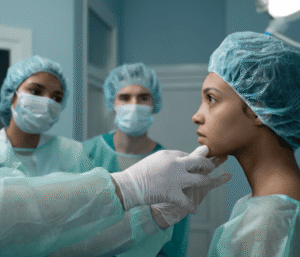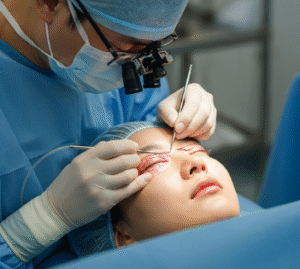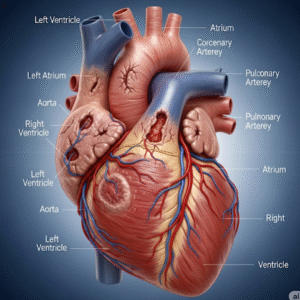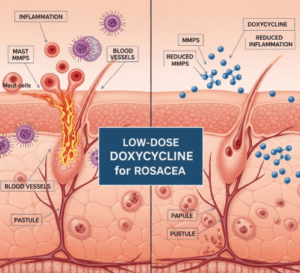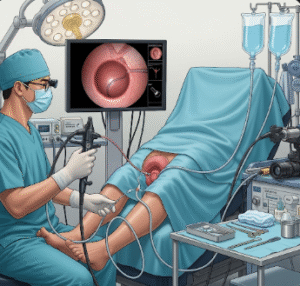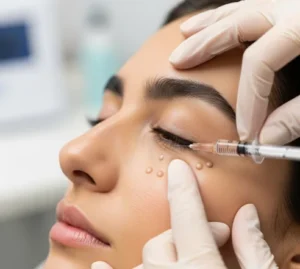Overview
Urogenital Sinus is a rare congenital anomaly where the urinary and genital tracts fail to fully separate during fetal development. This condition can range in severity and is most often identified in infants or young children, particularly in those with ambiguous genitalia or urogenital abnormalities. Early diagnosis and individualized treatment are crucial to ensure proper urinary and reproductive function, as well as psychosocial well-being.
What is Urogenital Sinus
Urogenital Sinus is a birth defect in which the urethra and vagina open into a common channel, rather than having separate openings. This condition results from incomplete division of the embryologic cloaca, and is more commonly seen in genetic females. Depending on the length and configuration of the sinus, the condition may cause problems with urination, menstruation, and sexual function. It is often associated with disorders of sex development (DSDs) such as congenital adrenal hyperplasia (CAH).
Symptoms
The presentation of urogenital sinus varies based on the length of the common channel and associated abnormalities:
- Single perineal opening for urine and vaginal discharge
- Ambiguous or masculinized external genitalia in genetic females
- Difficulty urinating or abnormal urine stream
- Recurrent urinary tract infections
- Abdominal mass or discomfort (due to retained menstrual blood in adolescence)
- Delayed or absent menstruation (in older children or teens)
- Infertility or sexual dysfunction (if untreated in adulthood)
Causes
Urogenital sinus results from a failure of the urorectal septum to divide the cloaca into the separate urogenital and anorectal tracts during early fetal development. It can occur in isolation or as part of a broader condition such as:
- Congenital adrenal hyperplasia (CAH) — most common association
- Disorders of sexual development (DSDs)
- Exposure to high androgen levels in utero
- Genetic syndromes affecting reproductive tract development
Risk Factors
- Family history of DSDs or CAH
- Genetic mutations affecting steroid metabolism or sexual differentiation
- Prenatal androgen exposure (endogenous or exogenous)
- Parental consanguinity (in rare inherited forms)
- Undiagnosed or poorly managed CAH during pregnancy
Complications
If untreated or improperly managed, urogenital sinus may lead to:
- Recurrent urinary tract infections
- Obstructed menstrual flow (hematocolpos or hematometra)
- Renal damage due to high-pressure urinary retention
- Impaired sexual and reproductive function
- Psychological distress due to ambiguous genitalia or identity issues
- Infertility
- Need for multiple surgeries and lifelong follow-up
Prevention
Since urogenital sinus is congenital, it cannot be entirely prevented. However, certain steps may reduce risks or allow for early diagnosis:
- Prenatal screening and counseling in families with known CAH or DSDs
- Proper management of maternal endocrine disorders during pregnancy
- Neonatal screening for CAH
- Genetic counseling for at-risk families
Treatment Options in Korea
South Korea offers comprehensive and compassionate care for children and adults with urogenital sinus through multidisciplinary teams involving pediatric urology, endocrinology, gynecology, and psychology.
- Diagnosis:
- Physical examination and genital imaging (e.g., pelvic ultrasound, MRI)
- Voiding cystourethrogram (VCUG) to assess anatomy and function
- Endoscopic evaluation to determine sinus length and vaginal structure
- Genetic and hormonal testing in cases of ambiguous genitalia
- Treatment:
- Surgical reconstruction:
- Vaginal pull-through, total urogenital mobilization (TUM), or anterior sagittal transrectal approach (ASTRA) depending on severity
- Goal is to create separate urethral and vaginal openings
- Hormonal therapy:
- For underlying endocrine conditions like CAH
- May include corticosteroids to suppress androgen production
- Long-term follow-up:
- Monitoring of urinary, menstrual, and sexual function
- Psychosocial support and gender identity counseling as needed
- Surgical reconstruction:
Korean hospitals offer state-of-the-art surgical techniques with excellent cosmetic and functional outcomes, supported by specialized pediatric and adult DSD clinics.


